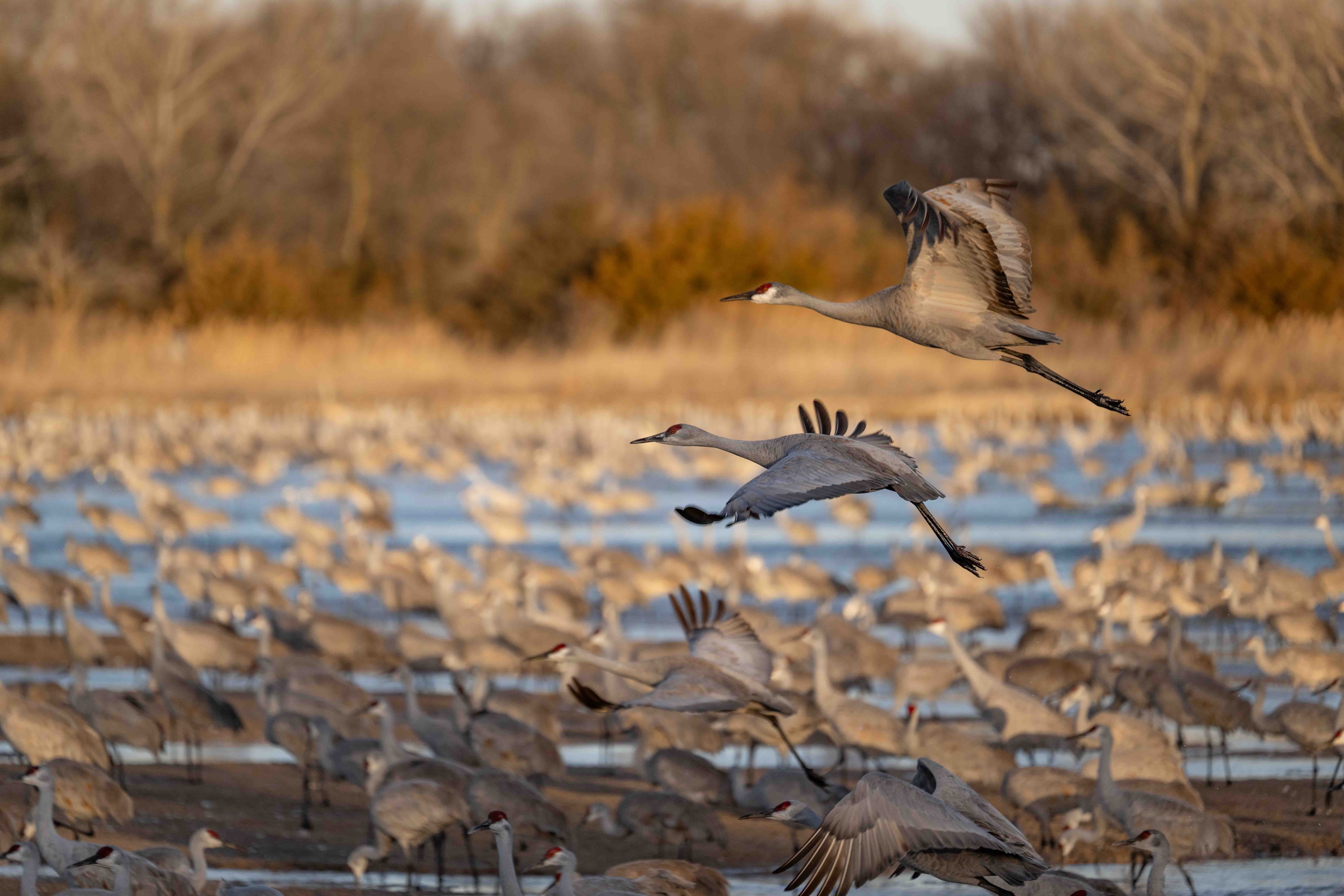
On February 29th the Crane Trust estimated 272,000 + 43,000 sandhill cranes between Chapman and Overton NE. This is over double what they had last week and is another record for the year. The last highest count recorded between February 25th and March 2nd (aka week 3) was in 2016 with 213,000 sandhill cranes. The previous week 2 record was in 2016 as well. So, looking back, 2016 might be our best guess at what could maybe happen this year as there are multiple similarities between the two years. 2016 was also an El Niño year which typically has warmer temperatures and augmented precipitation patterns. January of 2016 was the warmest recorded January at that time. This year Nebraska experienced below average temps for the whole of the month. However, outside of the polar vortex temperatures in the middle of the month, January 2024 was very mild with February following and amplifying that trend of above average winter temps. Fun fact, 2016-week 3 flight was also done on a leap day! In 2016, peak was week 5 (March 10th - March 16th) which is on the early side of normal for when peak numbers typically occur, weeks 5-7 (March 10th – March 30th). We saw a relatively gradual decrease of cranes between peak and mid-April in 2016 (see graph).
The question for the Crane Trust is this: Is migration earlier than 2016 causing more birds to show up earlier OR is the timing of migration similar to 2016 but there are just more cranes in the entire population? This is a question they won’t be able to answer until the migration is over and the trust has all the data for this year. However, timing of migration is extremely complicated including factors associated with climate, photoperiod, habitat quality, food availability, etc. If one of those things changes, the similarities to 2016 may go out the window. So just a reminder that predicting with any certainty what will happen in the coming weeks is nearly impossible. The trust just takes patterns we have seen in the past to try to make sense of the possibilities of what could happen. They have seen that cranes that arrive earlier often seem to stay a longer period of time, allowing for a build-up of cranes in the river valley throughout the entire month of March and a decrease into April. This could possibly be because there isn’t a pressure to migrate or perhaps the cranes want to avoid early spring conditions in their breeding grounds up north. It is difficult to discern crane logic, but the trust will continue to keep you updated on the results of their decisions.
The distribution of cranes throughout the Central Platte is shifting as more cranes arrive. Last week 28% of cranes were east of the Crane Trust (between Chapman and Highway 281), 69% of cranes were in or around Crane Trust land (between Highway 281 and Wood River), and 3% were west of Wood River. This week 23% of cranes were east of the Crane Trust, 58% of cranes were in or around Crane Trust land, and 18.5% were west of Wood River. Numbers in all parts of the CPRV are increasing.











